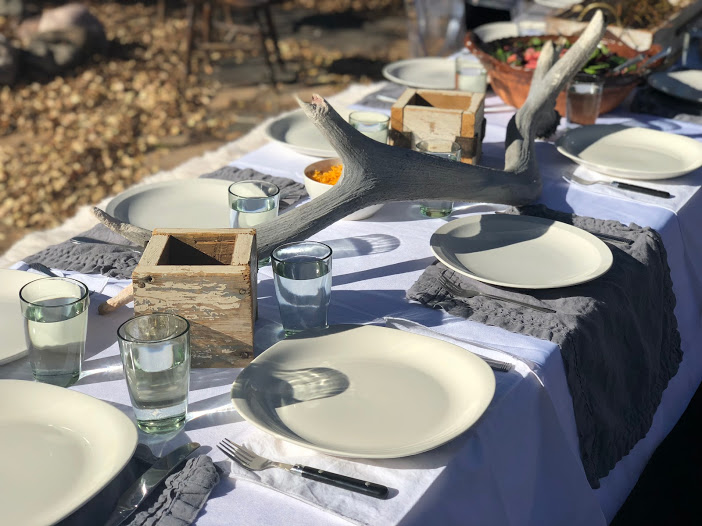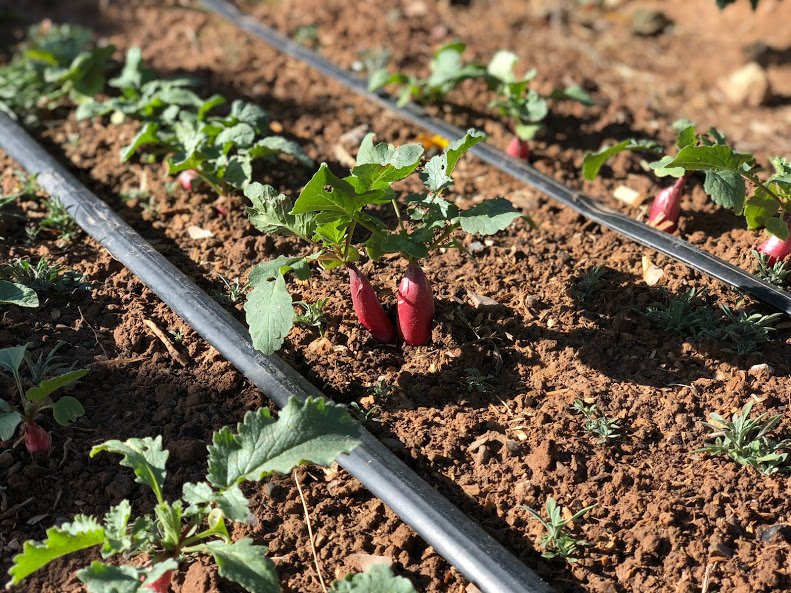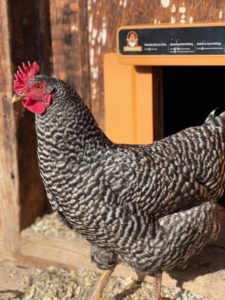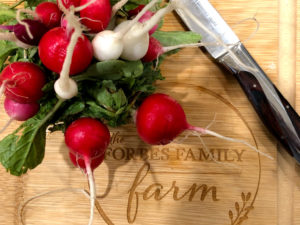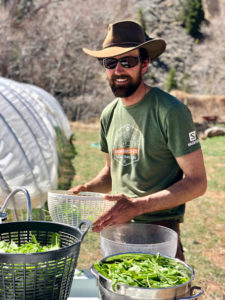First market of the year brings a look back on our values
Just a few days ago we got our market season kicked off with an indoor event in Green River, WY. It was great to see some familiar faces from last year’s farmer’s markets, and to meet numerous others for the first time. Thanks to our hoop houses from Farmer’s Friend LLC, and just a little kindness from mother nature, we were able to offer a respectable harvest of baby kale, arugula, spinach, radishes and tomato seedlings.
And then, just a few days later we had the privilege of sharing our story with a small group of farmers from around the world who are affiliated with the Market Gardener Masterclass. A common theme in both events is that we were asked a lot of questions. All of the questions caused us to reflect on our values and goals. As we head into the busy season we figure now is a good time to revisit those values and share some of our most commonly asked questions.
First, as we display on the front page of our website, our values are “family, community, education, wellness and quality.” We screen any new ideas, pursuits or products through the lens of these values. For instance, we are always considering new markets or avenues for making our products available to customers. One such opportunity exists in a popular tourist destination three hours away. It is in state and would seem to hold a lot of potential for increasing revenue.
However, at our current scale, pursuing this option could compromise a few of our values. Long hours on the highway with carsick kids is not often the best family time, nor does it do much for our wellness. And, on top of that, the long trek compromises the quality of our produce and makes harvest schedules even more tight. All this to say, we assessed our options and determined building our own farm stand and inviting people to the farm to buy our produce is more in-line with our values than pursuing another market. Would this plan make sense for others in our situation? Maybe, maybe not. Consciously or unconsciously, we all have a set of values driving our decisions, and this is just an example of how we navigate that decision-making process on our farm.
Now, this brings us to some of the questions we received in the past week.
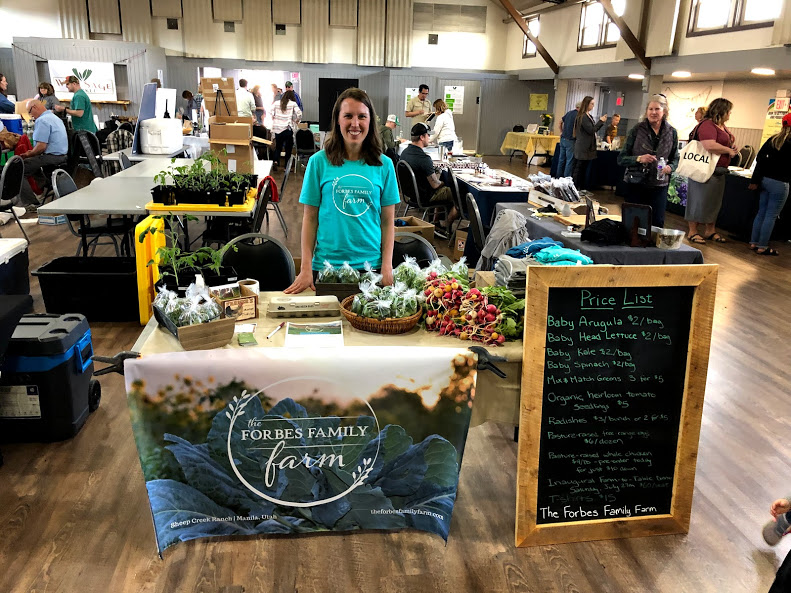
1. Are you guys growing any (insert your produce of choice here)?
In many cases the answer is yes, but occasionally we get asked about some pretty bizarre fruits or vegetables. Still, these questions are a good reminder for us to share what we are growing. We principally grow fast growing and heavy producing garden vegetables. We like to have 2 -5 cycles of crops on each garden bed throughout the season. This means we may grow radishes followed by lettuce, then green onions and ending the season with spinach.
Tomatoes, peppers and cucumbers are examples of longer season plants, but they produce a consistent harvest over a period of several weeks, making them a valuable use of space. Winter squashes, melons and corn are examples of crops we do not grow in our market gardens. These crops take a long time to reach maturity and often have a short harvest window. In the design of our market gardens, these crops take up too much space without providing high value products. So, for the most part, they are out.
However, we’ve received special requests for certain crops (i.e. sweet corn), so we’re finding ways to grow some of these items outside of our market gardens. We’re always open to requests or suggestions…that’s why we have over 300 garlic plants growing in one of our beds. We sure hope everyone wants garlic as much this year as they did last year!
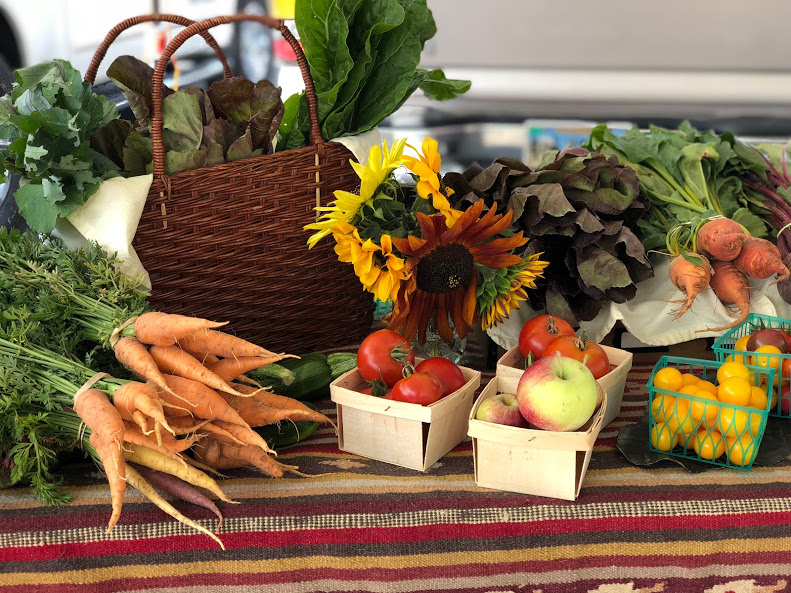
2. Are you certified organic?
The short answer is no, and that’s why we don’t market our products as organic. The longer answer is that organic certification is a long and complex process with the USDA. Do we support organic agriculture and have aspirations of achieving organic certification in the future? Absolutely! But, we have to be realistic with our current scale and circumstances.
In the meantime, we apply organic practices in all of our garden operations. So that means we use non-GMO, organic seeds and we never use any synthetic fertilizers, pesticides, fungicides or herbicides. We’re focused on building the quality of our soil so the plants we produce are incredibly nutrient-dense.
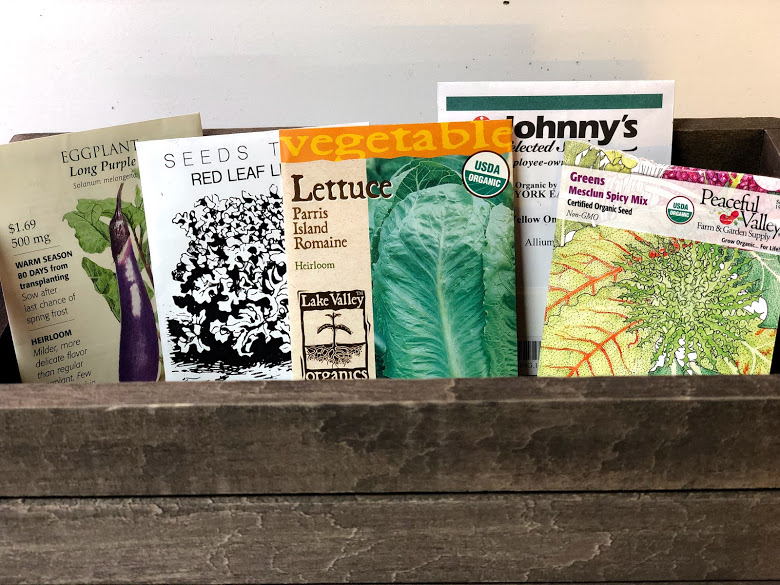
3. Are your chickens free range?
Like “organic,” “free range” is another one of those words requiring a little definition. If by free range you mean “do your chickens have freedom to roam wherever they want?” Then the answer is no. But there’s good reason why we do not allow them such freedom. We have an abundance of predators on and around our property, and they’ve already proven to us they really like chickens. If we let our chickens roam entirely free with no fences, we would not have chickens for very long.
So, instead we’ve come up with strategies that ensure our meat chickens and egg layers are on fresh grass every day, receive a full day of natural sunlight, and have a broad selection of bugs available to scratch for. Key pieces to our chicken operation are electric fences and mobile shelters. Does this constitute free range? Well it probably depends on your definition of free range. We prefer using the phrase “pasture raised,” because it is the most authentic representation of how we raise our birds.
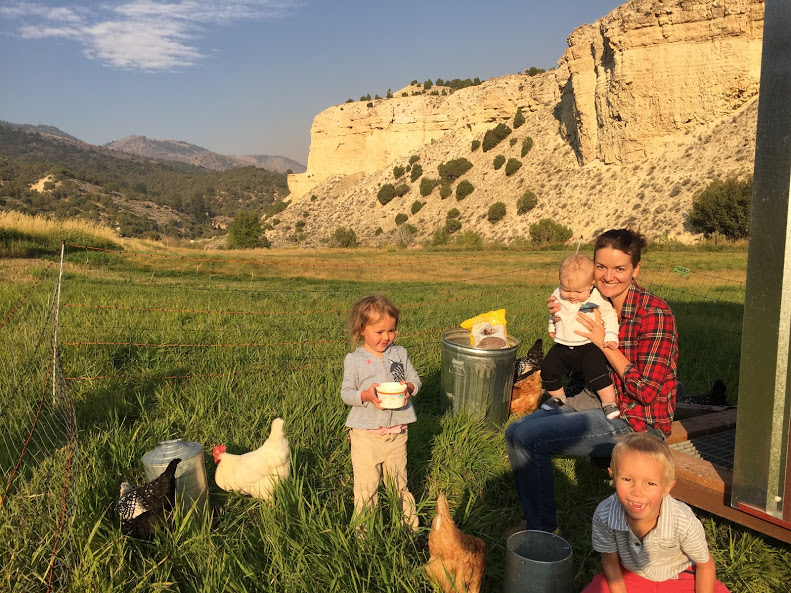
4. What kind of feed do you use for your chickens?
This takes us back to the discussions about values and the complexity of organic. We extensively researched options for organic chicken feed, but at the scale we need, most of the options come from halfway across the country. This constitutes freight shipping charges, and, not only that, but we do not have any control of the composition of the feed (i.e. what ingredients were included). Organic aligned with our values, but sourcing from across the country and losing control over what we are feeding our chickens at the level of individual ingredients was frustrating.
We started looking at the most local options we could find and, through some friends, came upon a “local” mill (it’s a few hours away, but that’s still local in these parts). The mill is not certified organic, but they are actively pursuing options to make a portion of their operation organic and they work with many organic growers. The mill operators were super flexible and willing to use our own recipe for the feed. For this year, it’s the right option, and such a step up from buying whatever we could find in stock at feed stores last year (sometimes organic, sometimes not).
Would we like to feed our chickens organic feed? Sure. But, we also want to get as many inputs as possible from our local community. So, when it comes to feed we’re choosing the option of fresh milled grains and legumes, be they not organic, over dried organic pellets shipped from across the country. We’ve learned quickly that few things in farming are black and white.

5. What exactly is a farm-to-table dinner?
It’s an experience you’re not going to want to miss! Farm-to-table dinners are a popular way of connecting people with where their food comes from. We are hosting our inaugural farm-to-table dinner on July 27th. The dinner will be hosted outdoors, right in the middle of our gardens and orchard.
You’ll be able to look over your shoulder to see exactly where the lettuce, tomatoes, cucumbers, beans and other vegetables on your plate were harvested. You’ll see ducks swimming in the pond and fruit ripening in the trees. And, best of all, you’ll get to taste how delicious farm fresh produce is when it goes directly from the ground to the kitchen and onto your plate. Wanting to cook great tasting food is what started us down this path of becoming farmers, and farm-to-table dinners are a great way to share our passion with others.
